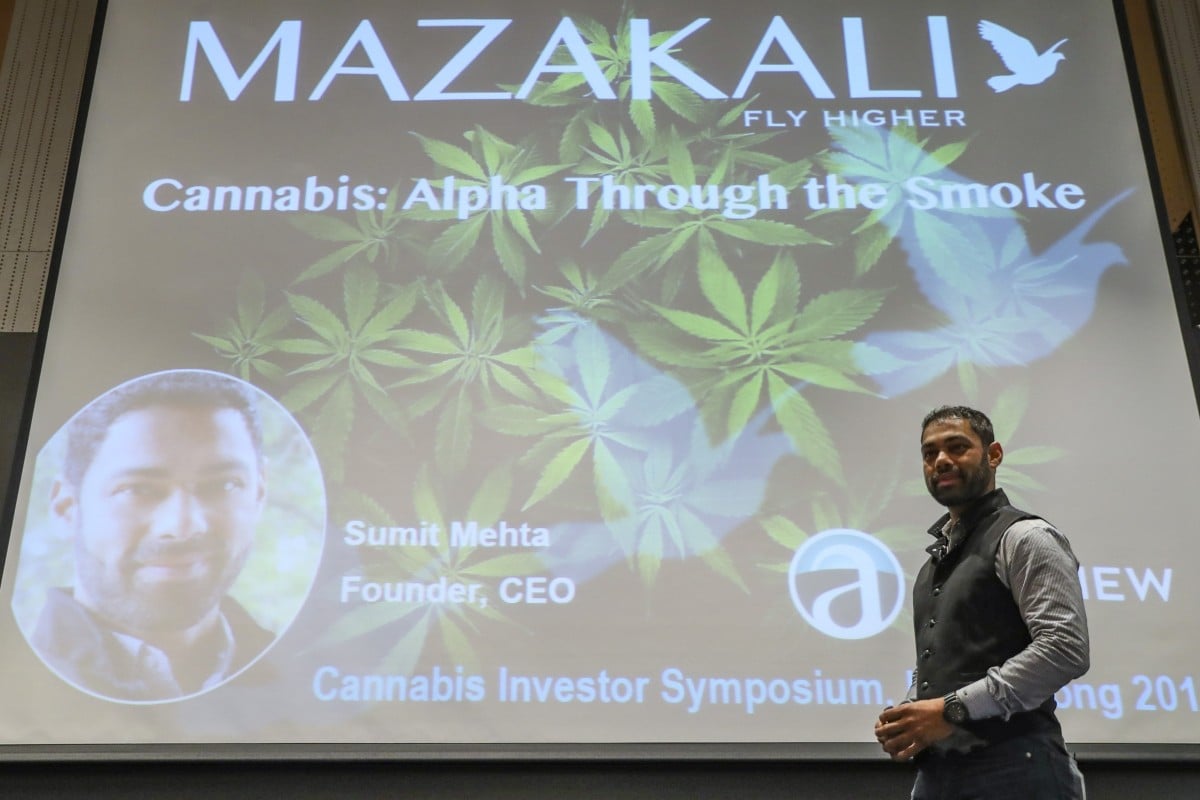
Cannabis firms call on Hong Kong government to legalise drug for medicinal use in the city
However, authorities say anyone dealing in the drug would be committing a crime
 Sumit Mehta of Mazakali, a cannabis consulting company based in the US, spoke at the meeting held in Hong Kong.
Sumit Mehta of Mazakali, a cannabis consulting company based in the US, spoke at the meeting held in Hong Kong. Foreign cannabis firms have called on local authorities to legalise the medicinal use of the drug in Hong Kong. But the authorities and experts rubbished the idea, saying there was no market in the city for the drug, even for medicinal use.
Two hundred entrepreneurs took part in the Cannabis Investor Symposium at the W Hotel in West Kowloon last week. They were hoping to get Hongkongers to discuss and invest in overseas cannabis businesses. Two weeks ago, Canada legalised the recreational use of cannabis.
Cannabis is treated as a dangerous drug in Hong Kong. Trafficking the drug into the city carries a maximum sentence of life in prison, while having or inhaling it can risk seven years’ imprisonment.
Should marijuana for recreational use have been legalised in Canada?
“Cannabis is not a drug. It’s a great medicine and is natural. We have really started to revolutionise how we think about cannabis,” said Saul Kaye, the founder and CEO of iCAN Israel Cannabis and one of the event organisers.
Kaye said people were using cannabis in Hong Kong. “It’s just underground,” he said, adding he was hoping officials would start talking about it. “We want to help them understand it isn’t illegal. It is not a black market we are talking about.”
But the Security Bureau said anyone dealing in cannabis in Hong Kong, whether the drug itself was in the city or not, would be committing a crime.
How to spot signs of drug abuse and how to offer help in a supportive way
Professor William Chui Chun-ming, president of the Society of Hospital Pharmacists, said cannabis had a medicinal value in the 60s. At the time, it served as a painkiller or anti-vomiting medicine. But it had no medicinal market in Hong Kong now, Chui said, because there were so many other options.
“Being a natural medicine doesn’t mean it is not harmful,” he said. “While it could relieve pain and anxiety, it causes a lot of adverse or negative effects, such as a faster heartbeat and influence on the brain. It is also addictive.” When something is addictive, you can’t stop taking it once you have started.
Assistant Professor Aviva Chow of the University of Hong Kong’s Department of Pharmacology and Pharmacy told Young Post he does not support the legalisation of cannabis. “Despite the medical value of cannabis, it can be substituted by many other alternative medicines which give similar medical effects.”
